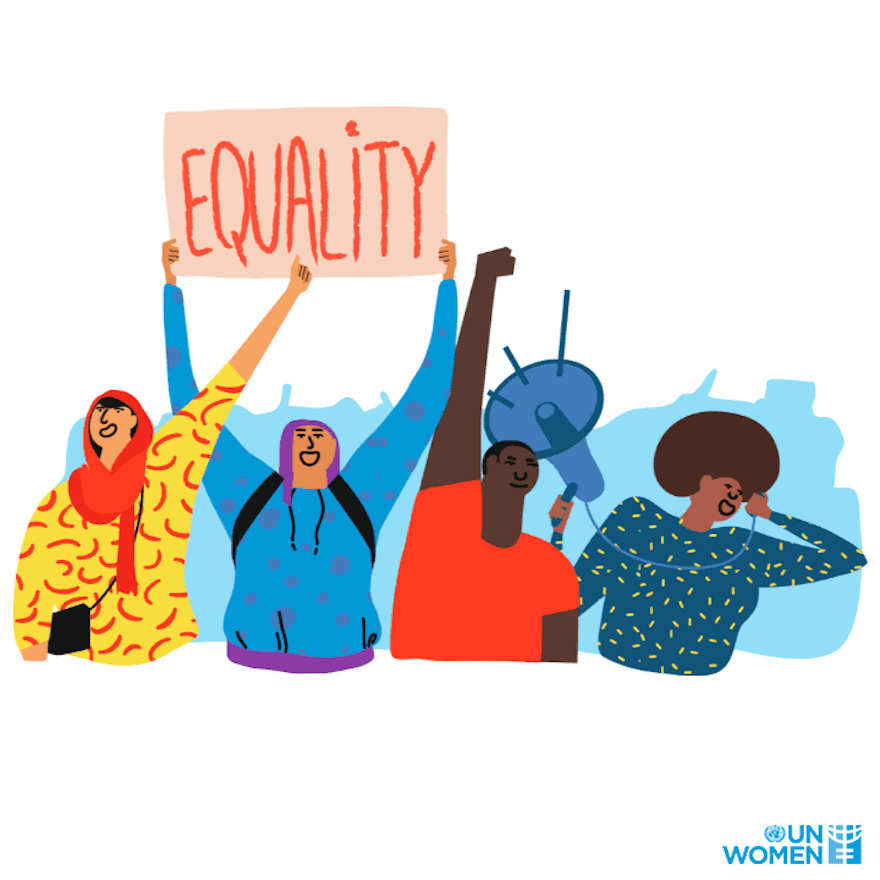Generation Z, or in other words, Gen Z.
The generation that follows the ambitious, driven millennials.
The generation that was born holding a smartphone and hasn’t put it down since.
The generation that has a voice to criticise but no other power.
The generation that has lived in the world long enough to see dramatic changes to climate, leadership and most importantly advertising.
But our time is coming to take over. And when we do, the world will be a very different place.
I’m going to tell you how Gen Z will change the advertising industry.
Let’s start from the beginning. Gen Z is the group of people who were born from the mid-late 1990s up to around 2015. I am one of them. We are described as ambitious, digital natives and confident.
Therefore, as far as I can remember, I have had access to the internet from a very young age and have been able to communicate instantly via my phone and have avoided many face to face conversations. I have been faced with a lot of disturbing news about climate change and seen many environmental catastrophes take place.
I am also faced with many thousands of adverts a day, whether it’s on the street, on television, on the internet or via social media.
I am going to use my personal experience and professional experience from working with Boon.Today to predict what will happen when Gen Z can finally take control of the advertising industry.
1- Brands will have to give back.
I remember when I was 12 years I had just started high school, and my science teacher started talking to us about the threats of climate change. He spoke about how the world’s temperature is increasing, recycling isn’t viewed as important and world leaders aren’t doing anything to stop this. This was the first time I can remember being genuinely concerned about the planet that I live on.
Gen Z has lived through countless changes to the planet. There have been major positive breakthroughs such as with renewable energy technologies. However, climate change is still a huge concern for my generation.
We have all lived through the melting of ice caps, species have gone extinct due to direct or indirect human activity, extreme forest and bush fires, extreme illegal deforestation, over-fishing, overpopulation, plastic in the oceans and sweatshops. Our climate has increased its global temperature from 0.39°C in 2000 to 1°C in 2020. We have seen countless leaders declare a climate emergency yet do nothing else about it. We have participated in climate protests and strikes, led by Greta Thunberg, a 17-year-old girl from Sweden.
Not a world leader, a teenager from Gen Z.
Yet slowly, as more of my generation graduate from university, many enter the marketing and advertising sector or may even start their own businesses. CSR strategies will become more prominent. Businesses will have to advertise and promote their initiatives to fight back. These can’t be meaningless words but will be physical projects that are being supported. These initiatives will become trendy and necessary.
For example, I saw a toilet paper company stating on their packaging that with every tree they cut down, they plant 5 more. This made me feel good about buying the toilet paper as I am aware of the effects of deforestation. These initiatives will become a necessity as, without them, the brand won’t survive any competition.
There is a lot of money spent on advertising. 563.02 billion dollars to be exact. With money comes power. The power to fight back and make a change, which is one thing my generation knows about. Turning this much money into funded projects will barely affect the advertising industry but will be necessary to ensure a happier and healthier world.
2- People will buy the experience
The packaging, the smell, the pretty bow or personalised note on the inside. It all screams ‘Our brand cares about you.’ Free products will no longer be about the ‘free’ side, but about the incentive. For example, a sustainable bamboo makeup remover towel to come with a face cream is more appealing to my generation than a plastic make-up brush, which is contributing to destroying nature.
3- So, the experience of the advert will matter
It will no longer be just presenting your brand or your product. The experience of the advert will matter, and the competition will be even more fierce to make your advert as unique as possible. The use of interactiveness, such as rich media solutions, QR codes, personalised adverts, ‘swipe ups’ on social media will become the norm.
There will be new technologies to present your product in fun ways. Such as a makeup brand allowing you to digitally put makeup on yourself from the comfort of your bedroom and see how you would look. This will eliminate the need for free products, which will, in turn, help plastic pollution.
4- Influencers will be everywhere!
Daytime TV certainly has its advantages in terms of advertising, and will likely still play a big part of advertising in the future. However, influencers have come about in recent years and what they are able to do via social media is unbelievable. They can reach millions of people in seconds, something which brands would pay much more and have to wait a much longer time to advertising on television for example.
Mostly everyone in Gen Z admires one or several influencers, mainly via Instagram. Instead of waiting for the next gossip-filled celebrity magazine to be released, my generation can track their favourite celebrities and see everything down to what they eat for dinner that night. Influencers also have the power to do good, which I think many of them will take advantage of. Spreading awareness, raising money, acting physically to stop climate change, plastic pollution and racism are just a few examples. Of course many do this already but I feel this will only increase more and more.
Being an influencer is an attractive job for many, and has big power to come with it. If used in the right ways, brands will take full advantage of these people in the future.
5- Interactiveness between brands and consumers
Chatbots, Instagram, personalised emails or text messages, liking or sharing posts onto ‘certified’ Instagram pages. All of the interactions between brands and consumers will increase to make the experience more personal which will contribute to you coming back for more.
A lot of brands are starting to do this, especially those that are aimed at Gen Z. Yet these personal interactions will only increase as brands fight to be the best.
Setbacks
Whilst the future of advertising seems positive and almost too good to be true, power and money will hopefully be put to better use, there are of course some setbacks. As technologies develop to include more interactive, digital and personalised forms of advertising, the use of advert blockers will also become more powerful.
Gen Z is exposed to thousands of adverts a day, and a lot of us are getting annoyed about this so are using and paying for clever technologies to stop them from appearing on our screens. These blockers will without a doubt become more prominent and available.
Therefore, media agencies and brands will try any way they can to reach you to avoid these blockers. This is why giving back, creating a personal and interactive experience as well as using influencers will be much more common. Social media & Online media will become the main advertising platform to be used by agencies, as Gen Z is not only comfortable with social media but understands the power of it.
Gen Z has the ability to bring forward more responsible, sustainable and interactive advertising. It can lead to a more responsible world as well as create a fresh and fun way to advertise to consumers, which will be ready for the next generation after us!

